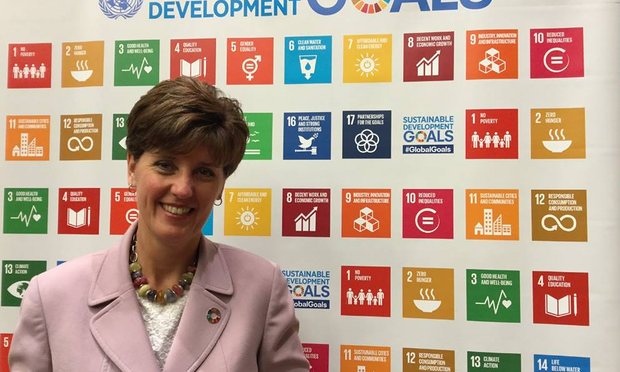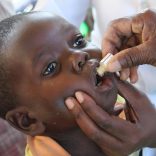Mozambique – New displacements due to NSAG attacks, Situation Report #1 – Chiúre, Ancuabe and ...
Canada broadens aid horizons as focus falls on women and girls in Mozambique

Canada’s International Development / Development minister Marie-Claude Bibeau says Canadians ‘have not heard about international development for 10 years’
Canada is broadening its horizons on aid, and that’s just the way Marie-Claude Bibeau likes it. The country’s development minister, who is on a mission to “re-engage with Canadians because they have not heard about international development for 10 years”, is keen to distance the government of self-described feminist Justin Trudeau from its more conservative predecessor. A project aimed at reducing the risks associated with child, early and forced marriage in Mozambique is indicative of that change in direction.
“The previous government really targeted all its support to safe delivery,” says Bibeau. “We want to open this to look at the full range of sexual and reproductive health services and rights. It means family planning, contraception, obviously safe delivery too, but safe abortion too when it is legal. So we really have a much larger approach to supporting women’s rights.”
Mozambique has the world’s 10th highest rate of child marriage (pdf). The four-year project aims to reduce the related dangers – which include complications during pregnancy and childbirth, maternal mortality and heightened risk of HIV infection – by reaching 45,000 girls aged 15 to 19. The scheme will particularly target the province of Nampula, where there is a 46% rate of early pregnancy among adolescent girls.
Run in partnership with N’weti, a local NGO, the initiative will pour $12.8m Canadian dollars (£7.8m) into developing radio programmes, events in villages, establishing 1,440 community support groups and funding traditional sexual health counsellors and birth attendants.
The project may never have seen the light of day under Canada’s previous prime minister, Stephen Harper, whose almost decade-long office brought not just a socially conservative shift but also a decline in spending on aid and development.
Under Harper’s government, the Canadian International Development Agency (Cida), established in 1968, was absorbed into the foreign ministry. Funding for abortion overseas was cut and a five-year freeze imposed on foreign aid spending to cut the federal deficit, causing Canada’s ranking in a world survey of development assistance to drop. The Mozambique project, and others like it, are seen in some quarters as signalling the return of Canada as a global big hitter.
Bibeau began her career at Cida, working for the agency in Morocco and Benin before returning to become a Liberal MP in Quebec. For her, Canada’s new development role starts with women.
“As Canada, we are known for having a certain leadership when it comes to gender equality and for trying to ensure that our projects have the best impact on women. I want our partners to … consult women in the field and make sure they are at the heart of the realisation of any project,” she says.
But blots on Canada’s record remain, not least failure to reach the UN target of spending 0.7% of gross national income on foreign aid.
“I will be asking for a significant increase, but we think the 0.7% in the short period is not realistic,” says Bibeau, who plans to make proposals to the cabinet based on a review of the department’s work.
She accepts Canada also has much to do on climate change, an area in which it is falling short at present. “It’s a big challenge to find the right balance between the environment and economic growth, and we are really working furiously to make decisions based on facts and to protect the environment as well as improving our economic growth.”
Nevertheless, Trudeau’s government has been heavily criticised over its environmental record. In response, Bibeau’s department points to a $2.65bn investment in helping vulnerable communities adapt to the impact of climate change by transitioning to low-carbon economies.
Bibeau highlights other efforts to engage on the issue over the past year, including the $1.6bn committed to security, stabilisation, humanitarian and development assistance in Iraq and Syria and $785m pledged to the Global Fund to fight Aids, TB and Malaria.
Some see the return of Canadian peacekeepers to the field as equally significant. In August, Canadian defence minister Harjit Sajjan announced that the country would commit 600 troops and $450m to UN peacekeeping operations.
Canada’s ambition is to be what Bibeau calls a “global convenor”.
“Not in everything,” she stresses, “but in subjects that we really care about. The latest example is the Global Fund. We really hope to do something to end Aids, TB and malaria. This is something we want to use our positive Canadian leadership to support, as well as the other subjects or the issues that are dearest to our hearts.”











Leave a Reply
Be the First to Comment!
You must be logged in to post a comment.
You must be logged in to post a comment.